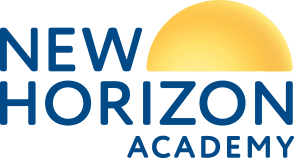How to Choose the Best Preschool

Choosing a preschool can be overwhelming. What’s the best option? When should you start looking? What questions should you ask?
Here are a few ways to determine which preschool is the right fit for your family.
20 Questions to Ask When Touring Preschools
- Is your preschool licensed and accredited?
- What is the teacher-child ratio in your preschool classrooms?
- Are meals and snacks provided?
- Does my child need to be potty trained?
- What safety and security measures are in place?
- What style of curriculum is used?
- What resources and learning materials are available to the children?
- How often do children go outside?
- What are the teachers’ qualifications?
- How often do teachers communicate with families?
- How do you keep track of children’s learning progress? Do you hold parent-teacher conferences throughout the year?
- How do your teachers handle discipline and challenging behavior?
- What does a typical day look like in your preschool program?
- Do you offer childcare programs for younger children?
- What enrichment programs are offered?
- What are the center’s hours of operation?
- What holidays and other days are you closed?
- Does the school offer a summer program for preschoolers?
- What are the tuition rates and fees?
- Will my child be prepared for kindergarten?

Criteria to Consider Before Choosing a Preschool
Here are the main things to look for in a good preschool:
Licensing and Accreditation
Preschool licensing affirms that a school follows basic health and safety guidelines. Preschools that are nationally accredited have undergone a more comprehensive evaluation process, and consistently meet the highest standards of quality. When a preschool is both licensed and nationally accredited, you can be assured that your preschooler will receive the highest quality of care and education.
Teacher-Child Ratios
Understanding the teacher-child ratios in the preschool classroom will help you understand how many kids will be in a class, as well as how much individual time they’ll get with the teacher.
Nutrition and Meals
Does the school provide meals, or will you have to pack breakfast, lunch and snacks for your child every day? If the preschool does provide meals, ask to see a sample menu so you can be confident your preschooler will receive nutritious and nourishing meals.
If your child has an allergy or other dietary restriction, be sure the school can accommodate them accordingly.
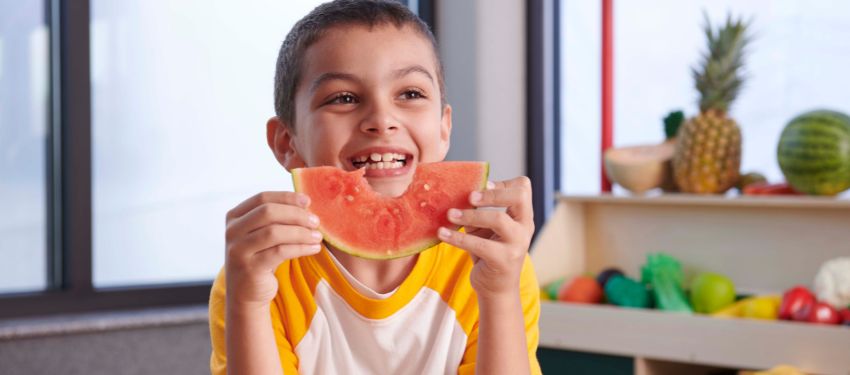
Potty Training Policies
Some preschools and daycare centers require children to be potty trained before entering their program and/or charge an extra potty-training fee for children who haven’t yet reached that milestone. Be sure to know the preschool’s potty-training policies to ensure the program fits your child’s needs, and to avoid hidden fees.
Safety and Security
Safety should be the top priority in any school. Use our Childcare Health and Safety Checklist to ensure your family’s preschool makes health and safety a top priority.
Preschool Curriculum
A structured, research-based curriculum provides children with necessary school-readiness skills before they start kindergarten. Asking preschools about their curriculum allows you to get a better understanding of what and how your child will learn throughout the school day.
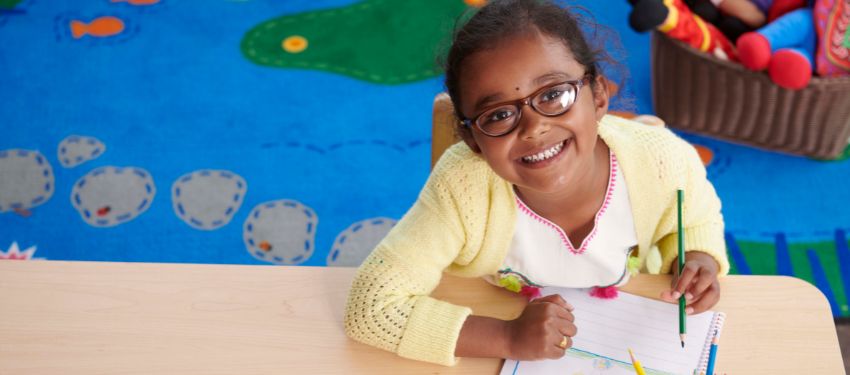
Learning Materials
As you tour different preschools, take note of the different learning materials you see. Does the school provide adequate toys, books, projects, and other materials for children to learn? Is there evidence of learning throughout the classrooms (i.e. projects displayed on the wall, designated areas for different types of learning, etc.)?
Outdoor Learning and Play
Outdoor play is such an important part of learning. It allows children to strengthen their motor skills, develop confidence, and think creatively. Make sure your preschool provides children with plenty of opportunities for outside time to move, learn, and play.
Teacher Qualifications
It’s important to familiarize yourself with the teachers and their qualifications. Does the school have long-term staff? Are the teachers properly trained in early childhood education practices? How much schooling and experience do the preschool teachers have in early childhood? The more qualified the teachers, the better the education your preschooler will receive.
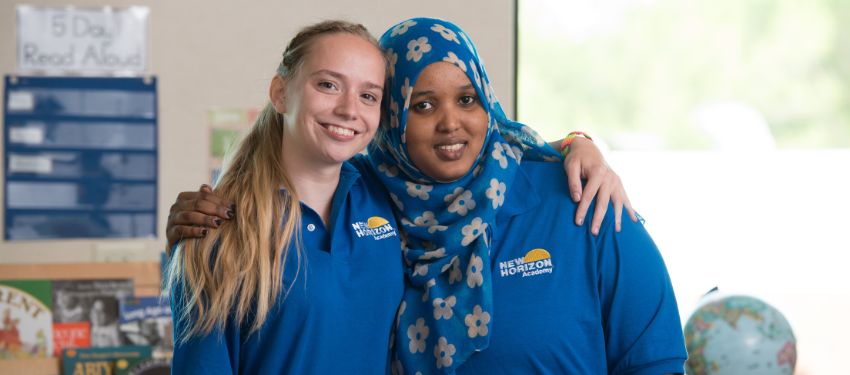
Family Communication
Parent-teacher communication is so important for supporting a child’s growth and development. As you tour preschools, ask what communication methods the schools have in place. Do they offer a mobile app for sharing daily updates with families? Do they send weekly or monthly newsletters to communicate school events, closings, and other important information? Do they offer opportunities for feedback?
Parent-Teacher Conferences
So much learning happens in preschool, so it’s important to know how progress is evaluated and communicated to parents. Are there regular parent-teacher conferences? Does the preschool assess developmental and school-readiness skills in preparation for kindergarten?
Challenging Behaviors
It’s inevitable that preschools will encounter challenging behaviors from time to time. As a parent, it’s important to understand how teachers will react and respond to behavior issues. Be sure to choose a preschool that approaches discipline in a way that you agree with.
Typical Day in a Preschool Classroom
While touring preschools, try to get a feel of what a typical day in the preschool classroom is like. What kind of activities do the preschoolers participate in? How often do they go outside? When are meal, snack and nap times? Is there opportunity for open-ended play and exploration?
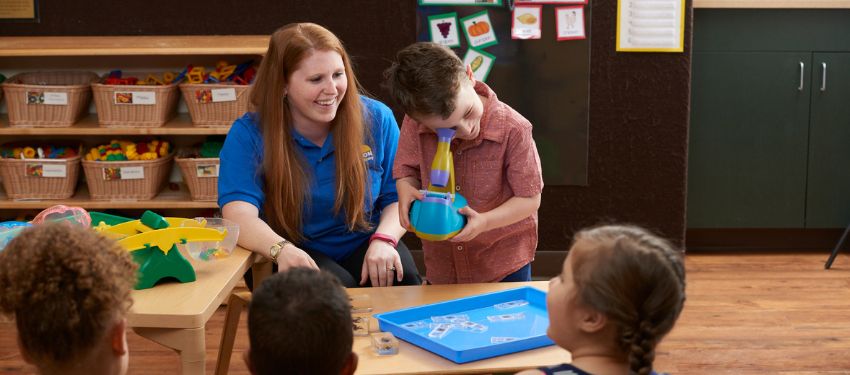
Other Childcare Programs
If you have more than one child, it can be convenient to have them all at the same school, eliminating the need for multiple drop-offs and pick-ups. When children are at one school from infancy to school age, classroom transitions can be easier. Ask if the preschool also provides childcare for infants, toddlers, and school-agers.
Enrichment Programs
Many preschools offer enrichment programs and other extracurricular activities that allow children to explore different interests and further their learning beyond the classroom. Ask the school director which kinds of programs are available to preschoolers at your school, whether it be a language, fitness, dance, music, or other program.
Hours of Operation
Make sure the preschool’s hours of operation fit your family’s schedule and needs. Are the school hours compatible with your work schedule, other siblings’ pick-up/drop-off times, and any other commitments? Are drop-off and pick-up times set or flexible?
Holidays and Closings
Make sure you are aware of any holidays or other days the preschool center is closed. This will help you plan for which days you will need to take off work and/or seek backup childcare.
Also, make note if the school frequently closes for inclement weather, so you can know whether or not your child’s school will continue to provide care on days with heavy snow, extreme temperatures, or other weather situations.
Summer Programs
Note whether or not the preschool offers a summer program. Some preschools only offer care during the school year, or require children to graduate in the spring, forcing you to find additional summer care. If the school does offer summer programs for preschoolers, ask if there are any extra fees.

Tuition and Fees
Don’t be afraid to ask about tuition when touring preschools. It’s important to know the overall cost, as well as what it includes. Also, ask about hidden fees that may not be mentioned right away.
Kindergarten Readiness
“Will my child be ready for kindergarten?” is one of the most asked questions by parents when touring preschools. Starting kindergarten is a huge milestone for children, and making sure they’re prepared with the necessary tools for success helps ensure a smooth transition into kindergarten. The preschool should work with the local school district to understand the skills and knowledge that children will need to be ready for kindergarten.

By asking these questions as you tour different schools, you’ll ensure that you’re able to choose a preschool program that fits your family’s unique needs. Download our Quality Childcare Checklist for additional criteria to consider when touring a preschool or daycare program.
Download Quality Childcare Checklist

New Horizon Academy is a nationally accredited preschool and early learning provider with over 90 schools in Minnesota, Colorado, Iowa, Idaho, and Kansas. Our preschool and pre-k programs use a research-based curriculum to prepare children for kindergarten through a variety of developmentally appropriate and engaging activities to support physical, cognitive, language, and social-emotional development.
Schedule a tour to learn more about our highly trained teachers, safe and secure facilities, and commitment to providing the highest quality education and care. Contact a New Horizon Academy preschool near you today!
